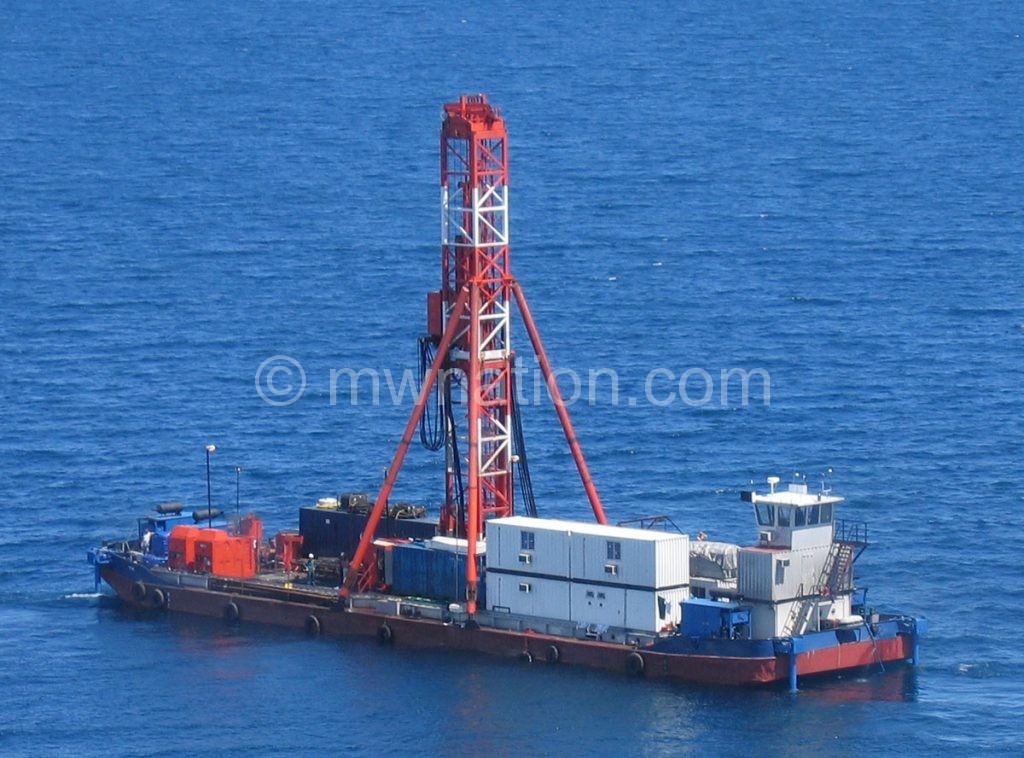Four oil and gas exploration investors close shop
All four oil and gas companies which were granted exploration licences during the past decade have surrendered them, citing economic hardships and the Covid-19 pandemic, authorities have confirmed.
But mining experts have blamed the development on bureaucracy and the country’s lack of a clear and robust legal framework to guide the development and exploration of mining activities.

Malawi is divided into six blocks for petroleum exploration. In accordance with the Petroleum Exploration and Production Act of 1983, government awarded the first oil and gas exploration licence for block one to Sac Oil Holdings Limited of South Africa in December 2012.
Blocks two and three were awarded to a British firm, Surestream Petroleum in 2011, but in 2013, an Egyptian company Hamra Oil Holdings Limited acquired 51 percent stake in the Surestream licences. Blocks four and five were awarded to RakGas of the United Arab Emirates in July 2013. The sixth block went to Seychelles-based Pacific Oil.
But in 2019 Sac Oil Holdings and Pacific Oil Limited relinquished ownership of their licensed blocks while Hamra Oil Holdings surrendered its licence last year.
In an interview this week, Ministry of Mining Andrew Mkonda spokesperson attributed the surrendering of licences to economic hardships and the Covid-19 pandemic.
Said Mkonda: “Oil and gas companies invest huge capital upfront in order to search for oil and gas. You may wish to note that in order for them to operate, they need enormous amount of resources and when they run out of resources, one of the options is for them to surrender the licence. Almost all the oil and gas exploration companies surrendered their licences due to economic challenges engendered by the Covid-19 pandemic.”
In an interview on Wednesday Natural Resource Justice Network (NRJN) chairperson Kossam Munthali observed that there is need to put in place progressive legislation on the sector but the ministry is yet to finalise review of the outdated 1983 Petroleum Exploration and Production Act as well as to formulate a policy for the sector.
Said Munthali: “To make matters worse, our Mines and Minerals Act 2019 Section 28 even provides secrecy in that these companies can start mining and are at liberty not to share reports and information until two years and by such a time they will have closed shop and left.”
But Mkonda explained that all oil and gas exploration companies submitted their reports and data to government such that the information will guide future investment and plans.
He, however, did not disclose the volumes of the country’s mineral reserves but hinted that government has a good database in its custody to guide its plans.
Said Mkonda: “At the moment government is spearheading policy formulation and reform of the legislative and regulatory framework so that they are in line with the international best practices to ensure sustainable exploration and utilisation of petroleum resources for the country’s social-economic growth and development.”
Munthali, nonetheless, insists that the data has not served its intended purpose as the information is still at Capital Hill and not trickling down to communities and district councils.
He also queried how government has used the $50 000 licence fees which the companies were paying annually since 2009 when government started issuing exploration licences.
But an official from the ministry, who did not want to be named, said the process of reviewing the Act started in 2017 while formulation of the policy began in 2016.
The official also pointed out that the Petroleum Act requires appointment of a commissioner for petroleum to enforce the Act and promote the sector.
Said the official: “The Mines Department has a lot on its plate; enforcing three laws, Mines and Mineral Act, Explosives Act, and Petroleum Act. The ministry is creating a Mining Regulatory Authority to remove some of its powers. Perhaps instead of creating an authority why can’t the ministry just create another department within the ministry to enforce the Petroleum Act to safeguard potential areas with huge prospects of oil and gas?”
Geological expert and former minister of Mines and Energy Grain Malunga in a telephone interview argued that apart from the Covid-19 pandemic slowing down the exploration works, the companies left due to frustrating bureaucratic procedures in concluding Petroleum Sharing Agreements.
He described the country’s environment as hostile for mining investment saying mining activities are not handled professionally.
On his part, community liaison expert on oil and gas Undule Mwakasungula urged government to conduct thorough due diligence of investors interested in gas and oil exploration and drilling to avoid situations where companies are just surrender licenses willy-nilly before meeting contractual obligations.
Results of a nationwide high resolution airborne geographical survey data released in 2015, showed the country is mineral-rich.
The study involved magnetic, radiometric and gravity methods which were conducted between September 2013 and August 2014.
Records at the ministry show that the country has deposits of rare earth elements, heavy mineral sand, uranium, niobium, bauxite, limestone, coal, graphite, nickel, gold, vermiculite, copper, oil and gas and platinum group metals, rutile, among others.





